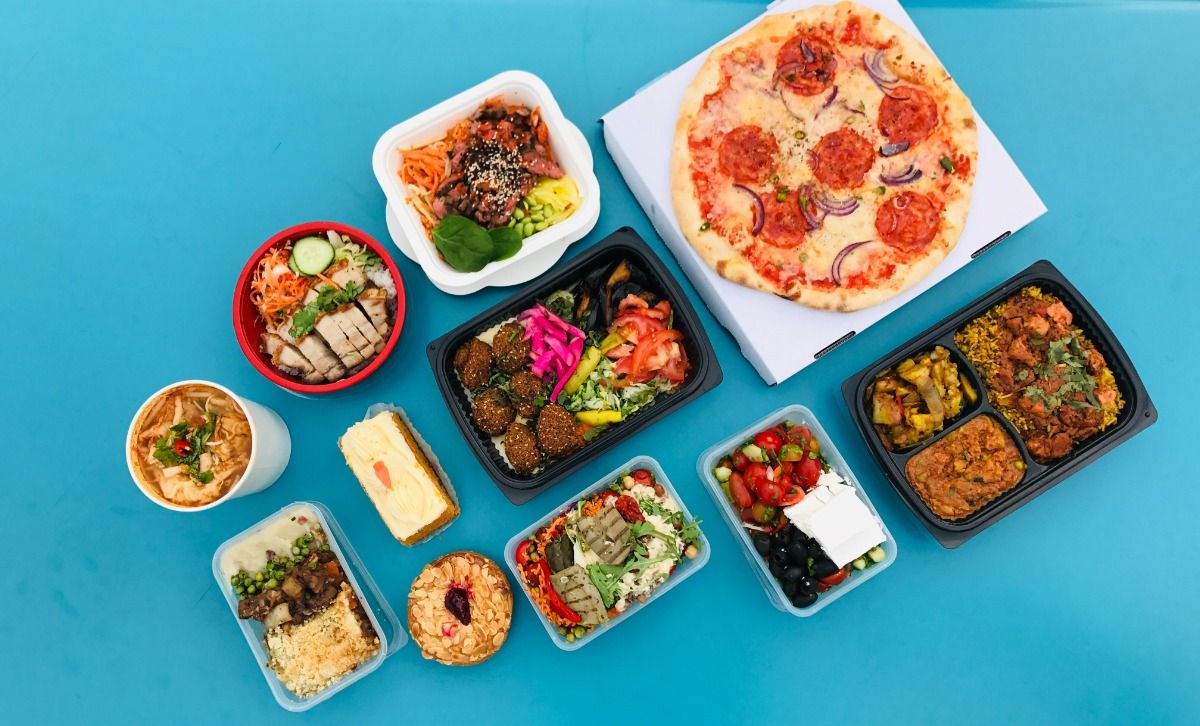
If you’re looking for ways to cope with and manage IBS symptoms, you could benefit from taking a food sensitivity test. IBS, or Irritable Bowel Syndrome, currently affects between 3 and 20% of people in the US. The condition is also one of the most common causes of stomach-related medical complaints worldwide. Unfortunately, although it’s common, IBS can be notoriously complex to manage.
Not only is Irritable Bowel Syndrome particularly complicated to diagnose due to its wide variety of symptoms, but it can also be easily confused with other health problems. Even when a diagnosis is possible, treatment often requires a personalized approach to recognizing and reducing triggers.
Certain foods might be the triggers you need to watch out for the most if you want to manage IBS. Food is one of the factors most likely to influence your experience of IBS. There are many different kinds of food that people are commonly sensitive to, from dairy to legumes. Problematic foods can make IBS symptoms worse, but there’s no one-size-fits-all guide for which foods will cause problems for everyone. This is because food sensitivities are very individualized.
An at-home food sensitivity test could be the key to understanding what contributes to your IBS flare-ups, so you can gain better control over your condition and better manage IBS.

What is a Food Sensitivity Test?
“Food sensitivity” is the term used to refer to people having negative reactions to or problems digesting certain foods. A food sensitivity is different from a food allergy, which can involve more severe, life-threatening symptoms and an anaphylactic response when certain foods are eaten.
If your symptoms of food sensitivity are mild, you may not know you have one. Many people don’t realize they have a food sensitivity until they invest in a deeper investigation by taking an at-home food sensitivity test. A blood test can help you find out if you do not have enough of a certain enzyme to properly digest certain substances.
At-home food sensitivity tests are now available, which allow you to measure your “reactivities” to certain foods from the comfort of your own home. At-home food sensitivity tests come in a range of forms, including:
- Finger prick blood tests: These are miniature blood tests which can test for IgE antibodies with a single drop of blood.
- Breath tests: Some food sensitivities which impair your ability to digest certain foods can be measured using a breath test. These tests measure certain gasses produced during fermentation in the gut.
A DNA test from CircleDNA can also help you to understand your possible food sensitivities, by giving you an insight into your nutrition report. A CircleDNA test reveals your risk for certain food-related health issues such as lactose intolerance, gluten intolerance and Coeliac disease, which may also cause IBS symptoms.
How Does a Food Sensitivity Test Help You Manage IBS?
Food sensitivity tests can provide you with insight into which foods are more likely to cause negative symptoms in your stomach or gut. A study from 2012 looked at the effects of regular diets to food sensitivity test-guided diets with “elimination” strategies.
The research learned the people following the test-based diet had fewer symptoms and improved quality of life. The test-based diet group also suffered from less bloating.
Other studies have since assessed the clinical value of food sensitivity testing and concluded these tests may be helpful at guiding dietary changes for people who have issues with certain foods.
When you have an idea of what kind of foods are most likely to cause symptoms for you, it’s easier to take an intelligent and personalized approach to treatment.
In most cases, people suffering from IBS are simply asked to follow a low-FODMAP diet. However, following this diet can be difficult for many people, due to the level of restriction required. Additionally, avoiding too many foods with a low-FODMAP diet could cause additional problems if it leads to nutritional deficiencies.
What is a Food Elimination Diet?
Food sensitivity tests are most commonly used as a tool for directing an “elimination” diet to manage IBS. Elimination diets involve removing a specific type of food from your diet and recording your symptoms to see whether or not they improve.
With a food sensitivity test, you will usually get a number of insights into your “high reactivity”, “moderate reactivity” and “mild reactivity” foods. These levels demonstrate which ingredients cause the strongest immune system response.
Since it can be difficult to eliminate a number of foods from your diet at once, you would use your food sensitivity tests to identify “high reactivity” foods to experiment with. Because IgG reactivity doesn’t automatically equate to sensitivity, there’s a chance removing certain foods from your diet won’t have any impact, even if you have a high IgG reading for that food.
Food elimination diets allow you to experiment with your responses to certain ingredients in a measured way, by bringing these foods in and out of your menu.

How Would You Use a Food Sensitivity Test for IBS?
Carefully removing one food from your diet at a time, such as gluten, and examining the response you have to your modified diet will help you manage IBS. This modified diet based on your food sensitivity test results will help you to determine which kinds of foods you might want to avoid in the future.
To tackle IBS with a food sensitivity test, you should:
- Use a food diary to record your digestion and IBS-related symptoms over the period of a few months. This gives you a baseline for your test.
- Take your food sensitivity test and see which ingredients cause the most problematic reactions.
- Remove “high reactivity” foods from your diet one at a time for a series of 4 weeks. You’ll need to give yourself plenty of time to see a difference.
- Track your response to the elimination diet, using your benchmark recording of previous digestive symptoms as your guide.
- Add the food back into your diet slowly and monitor your response. If you start having symptoms again, this could indicate a sensitivity.
- Decide whether it’s appropriate to eliminate certain foods from your diet long-term. For instance, will you have any side effects caused by nutritional deficiencies?
Ideally, the aim would be to add as many foods back into your diet as possible, so you can have a well-balanced menu for your meals. If you’re worried that removing certain foods from your diet will lead to nutritional deficiencies, you may need to speak to your doctor about taking dietary supplements.
Are Food Sensitivity Tests Useful for Those With IBS?
Food sensitivity tests like Circle Snapshot Food Sensitivity Test can provide a useful starting point for sufferers of IBS looking at “elimination diets” as a way to reduce their symptoms.
Rather than simply guessing which foods or ingredients might be causing you problems, food sensitivity tests help you get more specific insights into the ingredients which may be causing your uncomfortable symptoms.
At-home food sensitivity tests may not be quite as accurate as the in-depth lab tests you’d get at a clinic, but there is quite a wealth of information to be gained from the at-home tests.
If your IBS symptoms are mild and you’re happy to experiment with your diet at home, an at-home food sensitivity test could be an ideal way to begin this process.
References:
“IgG-based elimination diet in migraine plus irritable bowel syndrome” https://pubmed.ncbi.nlm.nih.gov/23216231/Accessed 17 January 2021.
“Irritable bowel syndrome: epidemiology, diagnosis and treatment: an update for health-care practitioners“, https://www.ncbi.nlm.nih.gov/pubmed/20074154. Accessed 17 January 2021.
“The Clinical Application Value of Multiple Combination Food Intolerance Testing“, https://www.ncbi.nlm.nih.gov/pubmed/31341848. Accessed 17 January 2021.







Comments are closed.